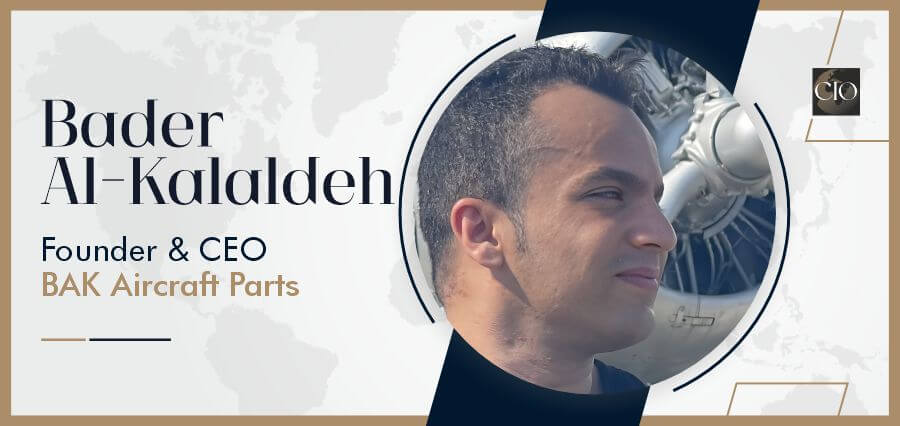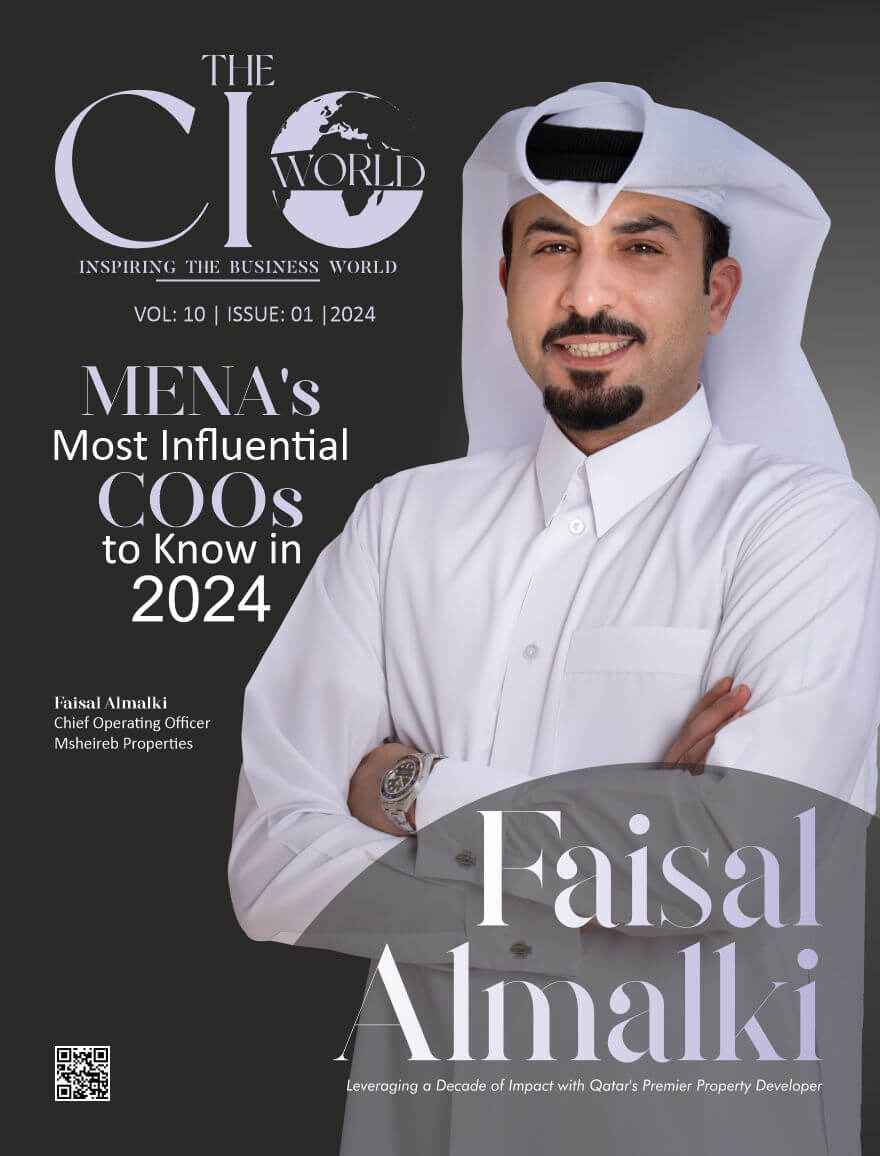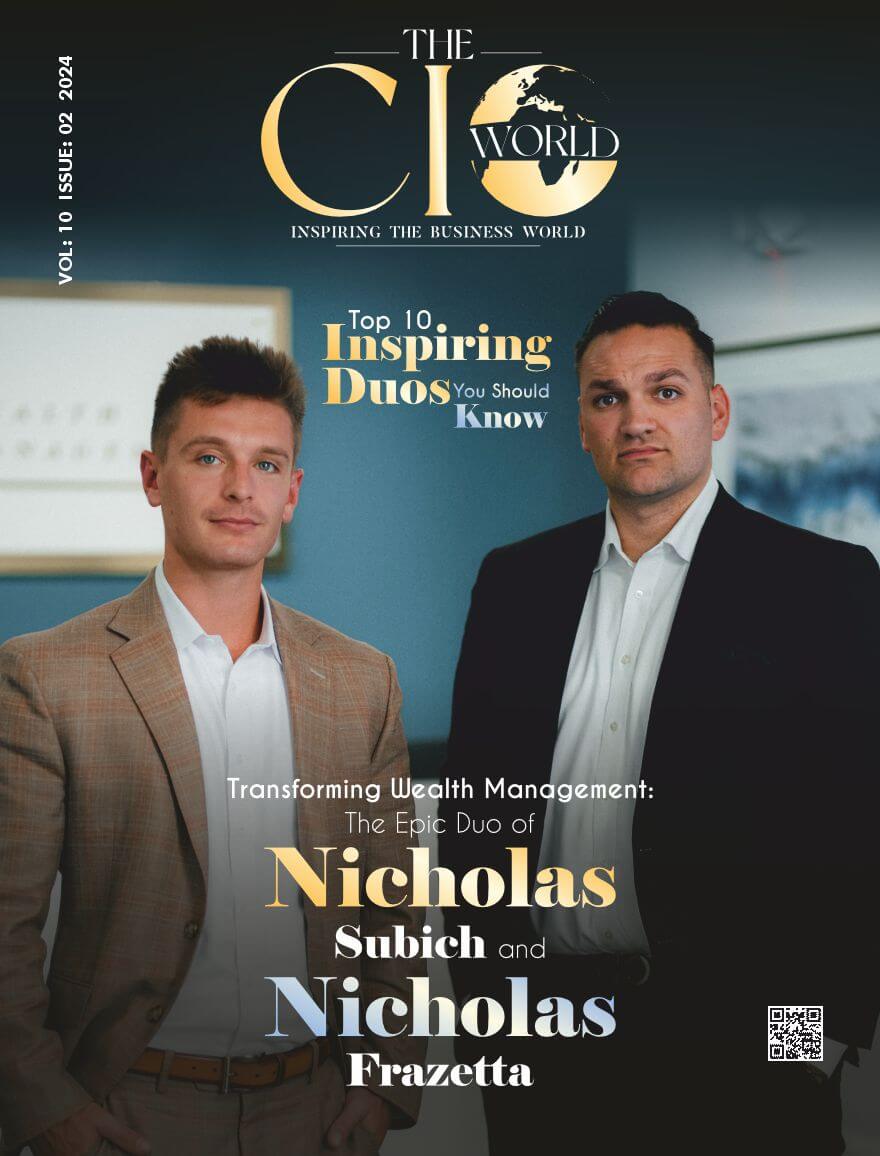From Childhood Dreams to Global Impact – Pioneering Change in Aircraft Spare Parts Supply!
Have you ever wondered what propels the dreamers, the ones who look up at the sky and see not just clouds but possibilities?
Bader Al-Kalaldeh, the visionary Founder and CEO of BAK Aircraft Parts, is one such dreamer, transforming his childhood fascination with aviation into a remarkable journey in the spare parts supply industry.
In the dynamic world of aviation, where innovation and precision are the cornerstones of progress, he has emerged as a trailblazer, carving a niche for himself and his company, BAK Aircraft Parts. With over six and a half years dedicated to honing his skills and expertise in the aviation sector, Bader’s passion for flight has become the driving force behind his commitment to excellence.
His journey is not just a professional trajectory; it’s a story of unwavering dedication and continuous self-improvement. His notable contributions extend beyond the boardroom, with five professional articles published on the world’s largest aviation website. These articles not only showcase his in-depth knowledge but also underscore his commitment to sharing insights and fostering growth within the aviation community.
At the heart of BAK Aircraft Parts is a commitment to innovation and service enhancement. In his previous role, he spearheaded the development of a groundbreaking app feature, providing essential flight computations and calculations for flight operations. This innovation not only reflects his technical prowess but also his foresight in leveraging technology to improve efficiency in the aviation sector.
Military applications have historically propelled aviation advancements, influencing both the defense and civilian sectors. Bader, with his deep-rooted passion and extensive experience, stands at the intersection of these realms, contributing to the broader trajectory of aviation progress.
Below are the interview highlights:
Can you share the inspiration behind founding “BAK Aircraft Parts” and how the idea for an all-in-one aircraft parts supplier came about?
The idea for an all-in-one aircraft parts supplier was born out of a deep understanding of the complexities involved in maintaining and servicing aircraft. I realized that by consolidating various aspects of the supply chain, we at BAK could offer a one-stop solution for aviation customers. This approach would not only streamline the procurement process but also provide significant benefits in terms of cost-effectiveness, inventory management, and overall operational efficiency.
In my last role, I developed a new app feature that provides essential and useful flight computations and calculations for flight operations link: https://play.google.com/store/apps/details?id=com.bakflight.calculator&pli=1
What sets “BAK Aircraft Parts” apart from other suppliers in the aviation industry, and how do you ensure a comprehensive inventory for Airbus, Boeing, Gulfstream, and Embraer parts?
BAK Aircraft Parts sets itself apart from other suppliers in the aviation industry by offering a comprehensive inventory of Airbus, Boeing, Gulfstream, and Embraer parts. They ensure this by maintaining strong relationships with manufacturers and distributors, utilizing advanced inventory management systems, and employing a team of experienced professionals dedicated to sourcing and stocking a wide range of aircraft parts.
Managing parts for various aircraft and engines is complex. How do you ensure the accuracy and quality of the parts supplied to meet industry standards?
To ensure the accuracy and quality of parts supplied for various aircraft and engines, we do the following:
- Quality Control: Implement a rigorous quality control process that includes inspection, testing, and documentation to ensure that all parts meet industry standards.
- Material Certification: Ensure that all materials used in the manufacturing process meet the required specifications and are certified by a reputable third-party organization.
- Design and Development: Use advanced computer-aided design (CAD) software and finite element analysis (FEA) to design and develop parts that meet industry standards and perform as expected.
Could you elaborate on your experience in the aviation industry before establishing “BAK Aircraft Parts” and how it influenced your approach to the business?
Before establishing “BAK Aircraft Parts,” I gained extensive experience in the aviation industry, working in various roles such as parts procurement and supply chain management. This experience provided me with a deep understanding of the industry’s needs, challenges, and standards, influencing my approach to establishing “BAK Aircraft Parts” with a focus on providing high-quality, reliable aircraft parts and exceptional customer service.
Given the diverse range of aircraft and engines you cater to, how do you stay updated with the latest advancements and changes in the aviation industry?
To stay up-to-date in the market as an all-in-one aircraft parts supplier, we utilize industry publications, attend trade shows and conferences, maintain strong relationships with manufacturers and suppliers, and continuously monitor market trends and technological advancements.
Can you share a notable success story or achievement of “BAK Aircraft Parts” that highlights your company’s commitment to customer satisfaction and industry excellence?
BAK Aircraft Parts has a notable success story that exemplifies the company’s unwavering commitment to customer satisfaction and industry excellence. One such achievement is the successful collaboration with a major airline to provide customized aircraft parts that significantly improved the efficiency and safety of their fleet.
The airline approached BAK Aircraft Parts with a specific need for a critical component that was essential for the optimal performance of their aircraft. BAK Aircraft Parts not only delivered the required parts within a remarkably short timeframe but also went above and beyond by customizing the components to enhance their durability and functionality.
In the competitive aviation parts market, how do you build and maintain strong relationships with clients and suppliers to ensure reliable and timely services?
To build and maintain strong relationships with clients and suppliers in the competitive aviation parts market, it is essential to prioritize clear communication, reliability, transparency, and integrity. This involves understanding the needs of clients and suppliers, delivering on commitments, providing excellent customer service, and fostering trust through consistent and ethical business practices.
Considering the global nature of the aviation industry, how does “BAK Aircraft Parts” navigate international regulations and logistics to fulfill client orders efficiently?
BAK Aircraft Parts navigates international regulations and logistics by ensuring compliance with aviation authorities such as the Federal Aviation Administration (FAA) and the European Union Aviation Safety Agency (EASA). Also, we work closely with customs agencies to manage import and export requirements and use efficient shipping methods to fulfill client orders promptly.
As the founder and CEO, what leadership qualities do you believe have been crucial to the success and growth of “BAK Aircraft Parts” in the industry?
- Visionary Leadership: The ability to envision the future of the company and the industry and to inspire and motivate others to work towards that vision. This has involved setting clear goals and priorities and making strategic decisions that align with our vision.
- Innovative Thinking: Encouraging a culture of innovation and experimentation and being open to new ideas and perspectives. This has helped us to stay ahead of the competition and to develop new products and services that meet the evolving needs of our customers.
- Strong Communication: Effective communication with employees, customers, and stakeholders has been essential for building trust, resolving conflicts, and ensuring that everyone is working towards the same goals. This has involved active listening, transparent communication, and a willingness to receive and act on feedback.







